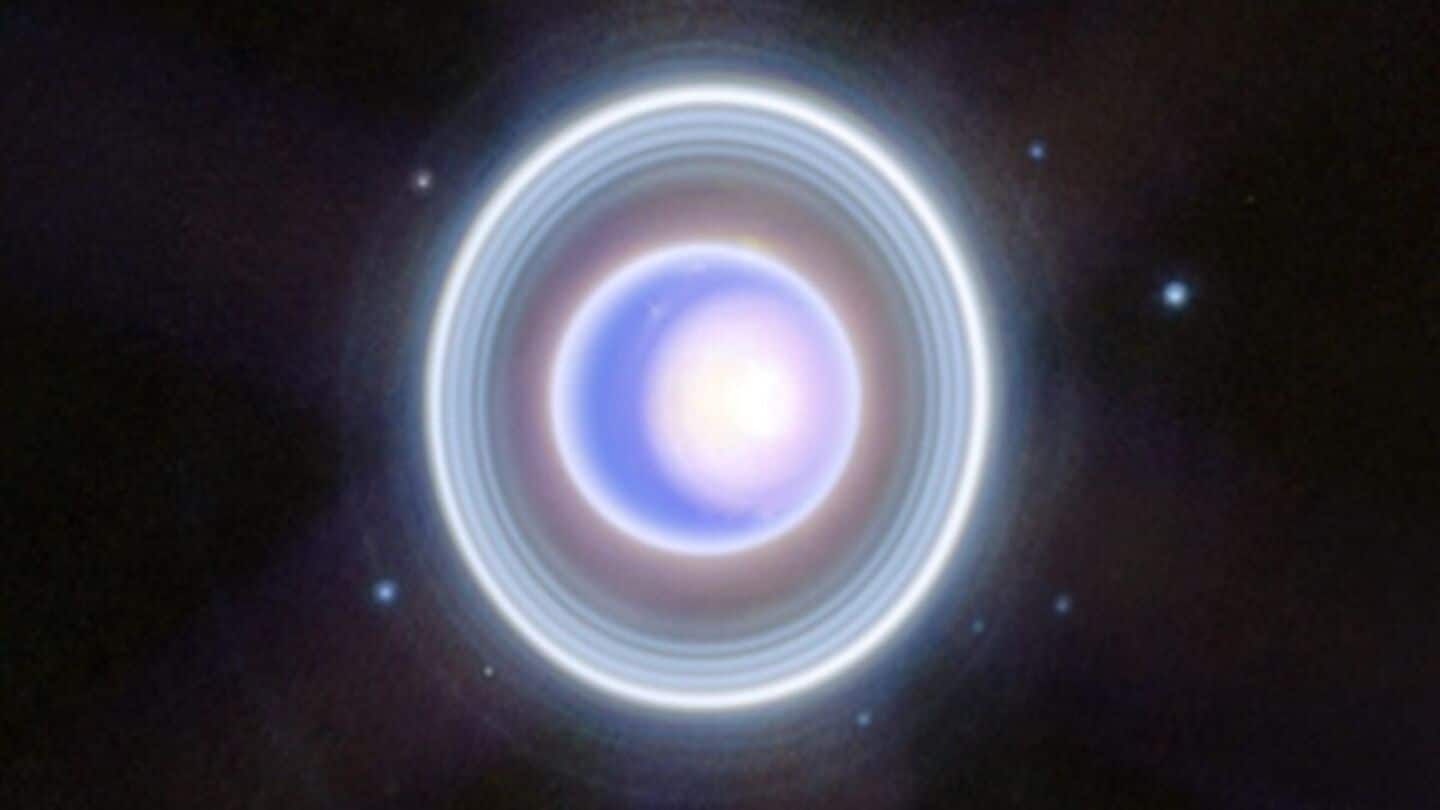
Watch: Uranus passed between Earth and a distant star
What's the story
NASA scientists recently took advantage of a rare opportunity to study the atmosphere of Uranus.
They were able to do so thanks to a cosmic event called "stellar occultation," during which the ice giant passed between Earth and a distant star.
The event, which lasted for about an hour on April 7, was visible only from western North America.
Global collaboration
International astronomers collaborate for rare cosmic event
The last bright stellar occultation of Uranus was in 1996, highlighting the rarity of such events and prompting NASA to be well-prepared for this one.
An international team of more than 30 astronomers, led by planetary scientists at NASA's Langley Research Center in Virginia, used 18 observatories to gather data.
"This was the first time we have collaborated on this scale for an occultation," said William Saunders, a planetary scientist at Langley.
Data collection
Scientists measure Uranus's atmospheric properties
Saunders thanked all team members and observatories for joining in this extraordinary event.
He said, "By observing the occultation from many large telescopes, we are able to measure the light curve and determine Uranus's atmospheric properties at many altitude layers."
The scientists could measure temperatures and composition of Uranus's stratosphere, its middle layer of atmosphere.
Future exploration
NASA's data could aid future Uranus exploration efforts
The data collected by NASA could help in "future Uranus exploration efforts," agency officials said.
Uranus, which is located roughly 3.2 billion kilometers away from Earth, is an ice giant composed of a mixture of water, ammonia, and methane.
Its atmosphere is mostly made up of hydrogen and helium, making it an amazing atmospheric laboratory for studying cloud formation, storms, and wind patterns without surface-related variables complicating simulations.
Future events
Uranus to occult several stars in coming years
NASA has announced Uranus will occult many stars over the next six years. The next significant Uranus occultation, involving a star even brighter than this month's event, is scheduled for 2031.